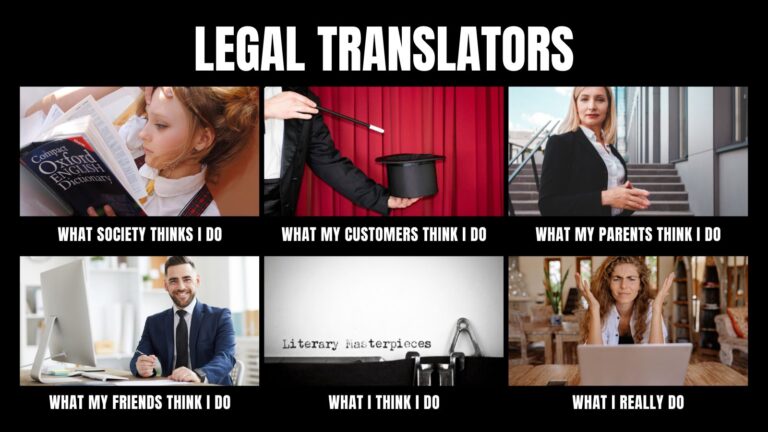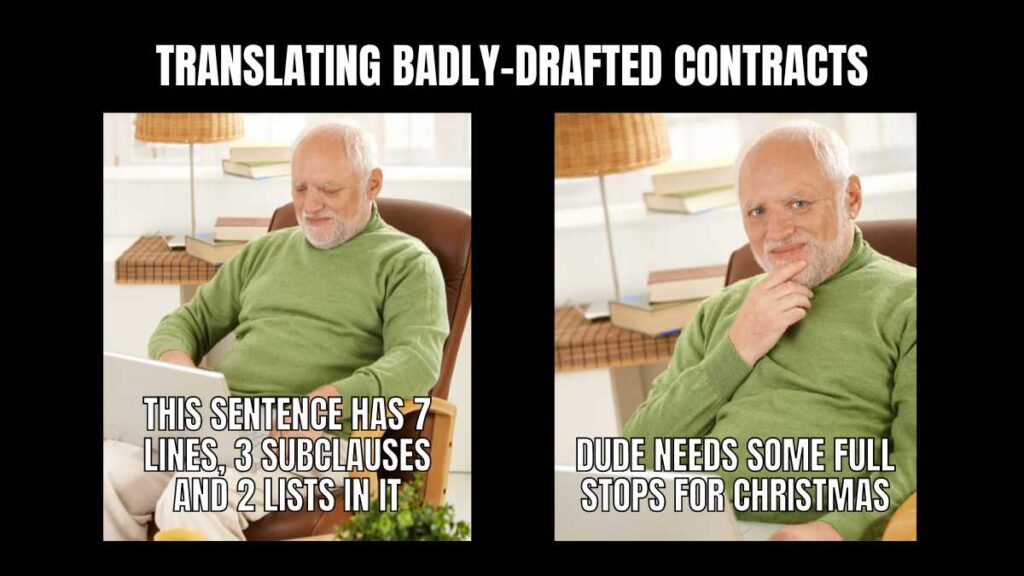I became a freelance legal translator in the summer of 2015. Prior to that, I worked for 11 years in the Austrian legal sector, specialising in banking & finance law. To be honest, becoming self-employed was never part of my plan – it just sort of happened.
I felt that I had reached the end of the road with my legal career and couldn’t see any other jobs on the market that I wanted to do. On the other hand, from my own experience, I knew how hard it was to get high quality, accurate legal translations from German into English. There was certainly a gap in the market and I could meet that demand. So I made the leap into the world of freelance legal translation, and Spezialis Translations was born.
I’ve never regretted that move. The last 8 years have been a wild ride – not to mention a mighty steep learning curve! Learning how to acquire and keep clients, surviving in a highly competitive industry going through momentous changes as the influence of AI and machine translation takes hold…being a translator has never been less than completely challenging.
No doubt, there have been some great highs – and some very frustrating lows. Here are some of the things I’ve loved (and torn my hair out over) in my 8 years of legal translation…
As a legal translator, you have to deal with some really bad writing
The brutal truth is that only a few lawyers (or authors of legal documentation) write well. Sentences 9 lines long, texts packed with too much jargon, sloppy grammar – or source texts which have obviously been (badly) translated from another language before it lands on my desk. I’ve seen it all.
A lot of the time, I am able (and happy) to speak to the client directly to clarify the point – something which they very much appreciate. Other times, that’s not possible and I just have to do the best I can with the source text by applying common sense and the principles of legal interpretation.
As a legal translator, it is not your job to amend or improve the source text. You have to deal with what is handed to you. Indeed, some of the most satisfying jobs I have done have involved transferring mistakes or ambiguities in the source text into the target language. If you’re a translator, you know that “translating a mistake accurately” is not a contradiction in terms.
When some good writing lands in front of you, it is like chicken soup for the soul
While I have spent a lot of time shaking my head at the sloppy way in which some people organise their legal affairs, other source texts are just a joy to behold. For a legal translation nerd like me who used to work in the banking sector, there is nothing better to translate than a well-drafted and coherent factoring agreement. Or an articles of association for a company where the author has correctly identified the risk of the company operations being classed as banking transactions under Austrian law and inserted the necessary carve-outs. That was a lean, elegant document.
Another thing I love to translate are written pleadings submitted to court (e.g. as part of contentious civil or commercial law matters). Lawyers sometimes have to put together arguments on shaky legal premises and can resort to injecting a certain drama into their submissions to try and persuade or move the judge. Finding the correct words to convey the legal content as well as the tone of the author’s writing in English is always fun, as it combines law with linguistic creativity. Right up my street.
You learn very quickly which translations to say no to
Every translator gets themselves into a pickle with an assignment at some point. Maybe you took it on because you really needed the cash. Or perhaps you were in too much of a hurry when accepting the job and didn’t look at the document properly. Whatever the reason, every legal translator with a few years’ experience will know the sinking feeling of being stuck with a job they should have left wilting on the vine.
Jobs from agencies where they only give you a pdf and don’t allow you to use a CAT tool – you can almost hear your hourly rate bump-bump-bumping down into the cellar. Also: patents – these are legal documents and therefore often land with a legal translator. However, they really belong with a translator from the field of the invention itself, as they are highly technical instruments.
Because I am a native speaker of British English, that is the English variant I translate into as standard. I’ll take on documents which have to be translated into US English occasionally – as long as that only entails spelling things like “authorise” with a “z” instead of an “s” and getting full stops (or periods!) on the right side of speech marks. That I can do.
Other things are just way beyond my paygrade. I once spent 2 miserable days trying to translate a text on real estate from German into US English. I won’t lie, there were several desperate emails sent to an American acquaintance asking what she calls various types of housing. When it comes to the real estate sector, the Yanks have a whole different vocabulary to us Brits. To this day, I’m still not entirely sure what a condominium is.

A lot of the work you do is actually quite boring
Every now and again, a really exciting translation lands on my desk. A project financing agreement for a windpark. A sustainability report for an company in the energy sector. A strategy document for a company in the field of international development. Those are the highlights of my #translatorlife.
But you’ve got to take the rough with the smooth and being a legal translator also involves translating standard documents again and again…and again! Excerpts from the companies register, for example – or general terms and conditions where you always encounter the same boilerplate clauses. If you are working with the same client over a long period and have built up an extensive translation memory and terminology database, translations at some point become more or less a copy-paste exercise. Efficient? Yes. Stimulating? Not especially.
Big pieces of legislation also create a wave of highly repetitive work. In the first 6 months of 2018, just before the General Data Protection Regulation entered into force, I translated so many privacy policies, I could have recited the GDPR in my sleep…backwards. I earned some good money off that – but I was heartily sick of seeing those documents!
It was great preparation for the pandemic lockdowns
No, legal translation doesn’t have a positive effect on your immune system or make you superhuman – sadly. However, the way translators tend to work – alone at home, staring at their computers screen, withdrawn from the world – is eerily similar to what everybody else found themselves doing when the pandemic hit in early 2020 and we were all sent into lockdown.
Being a translator was definitely good preparation for that strange period. In fact, in terms of my work life, I didn’t notice much difference from before. In essence, even in normal times, freelance translators work as though there is a deadly disease on the rampage.
There’s nothing like a client coming back to say thank you
Another hard truth: “thank you” are words I haven’t heard often enough in the last 8 years. Perhaps it’s because of the nature of translation when you are almost never in personal contact with the agencies or customers you are working with. Perhaps it is easy to forget to say thank you when a translator is simply a faceless entity on the other end of an email exchange or project management dashboard. Or maybe work stress makes people forget their Ps and Qs.
But considering all the weekends I’ve given up, the evenings I’ve worked late, the effort I put into every single translation – I haven’t been thanked anywhere near enough.
Therefore, because of its comparative rarity, any sighting of the elusive lesser-spotted thank-you creature is doubly, triply thrilling. I’ve had some very touching thank you emails from my customers – and I save every single one to a special Outlook folder. Ready for re-reading when I’ve just poured my heart and soul into another project, sent it off…and never heard anything ever again.
—–
Photo credit: mstandret on Envato Elements
Memes generated using Canva

